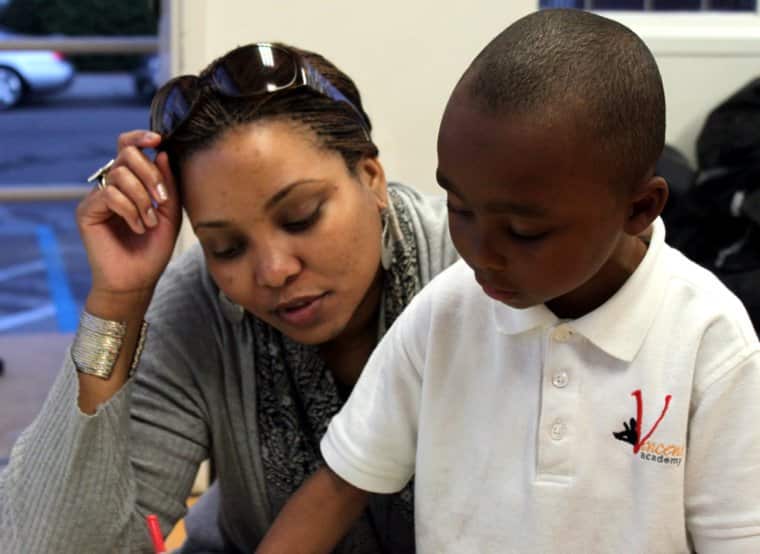![]()
My toddler slapped me three times in church last week
and I did not hit her back.
The pastor asked me how I managed to stay so calm.
I pictured our Hand in Hand teacher.
In spring 2015, the Hand in Hand Parenting community came together to raise $15,000 to provide free Hand in Hand Parenting classes to parents who would otherwise not be able to take a class. The Hand in Hand staff and board were deeply moved by our communities’ generosity and the impact the classes had on marginalized parents.
One project supported with these funds in 2015 allowed a Hand in Hand instructor in Boston to launch a relationship with a shelter for homeless moms in her neighborhood. The women in the shelter are either pregnant, already mothers of young children, or both. They range in age from 17 to mid-thirties. None had heard of Hand in Hand Parenting. And, like most parents we meet all over the world, they craved support and someone to listen to their concerns. This group, however, was resistant to our instructor at first. And rightly so.
Our classes begin with the obvious, but often unspoken, fact that parents need and deserve more support than they get in modern society. In this class, support is not only for “parenting skills” but for the parents as people in dire situations.
“I feel like I am in prison here.” One mother started as the sharing began. Others spoke up about the difficulty of homelessness and shelter life.
“People don’t have compassion for us. Being homeless is an insult in itself.”
“We all have bad self-esteem, wouldn’t you? I am an adult and a mother and I have to put up with living with these shelter rules. Really?”
“How can our children accept our authority when we are treated like children ourselves? How does that make sense?”
In discussing setting limits, many mothers shared that they spanked or whooped their children for many of the same reasons we have heard from many others over the years.
“If my parents did not spank me I would be in jail today.”
“My child has to listen to me. I can’t have him being bad, especially in public. It is too dangerous.”
“A little ‘pow pow’ is what you do when you have to. I got it when I was a kid and I turned out ok. I don’t hurt him.”
After a few weeks of focused listening and adapting the Hand in Hand class to the needs of the parents in front of her, our instructor introduced the concept of Staylistening. To her surprise, the success stories started to trickle in. Like this one:
“My daughter was crying that she did not want to go into daycare. Every day we have a scene and I make her go. I feel so bad about how she feels that I get mad. Yesterday, I got down on my knee and just listened to her for awhile like you said to do, and then she cried and then stopped and hugged me and went in. It was hard for me to do that, but it worked.”
 During the 10-week class, many of the moms started to express what they saw as the benefits of the class.
During the 10-week class, many of the moms started to express what they saw as the benefits of the class.
“It helps me change my perspective.”
“It gives me ideas.”
“We get a chance to talk. Nobody listens to us. You let us talk.”
And they saw the benefits with their children. When talking about Playlistening: one mom said heatedly, “I am not playing! My daughter needs to know I am serious when I tell her something. She has to listen to me.” The next week she came in shared that during the week, her daughter said “no” to her and instead of getting angry, she decided to try the game of saying “yes” back in a funny way. She said they played this pretend arguing game for a while, and then her daughter did what she had asked. She acknowledged that it was better than “getting all angry and stuff.”
By the last class, the mothers had plenty to share about their experience.
“I like that people can be open-minded. You can vent anything and not be judged. This class is the only place I relax all week.”
“I like to see how we get to talk about our problems and see each other’s faces.”
“I like the idea of trying to listen to my child. He talks so much. Now I let him and encourage him.”
“I like that I’m able to have a little more patience with my child. It’s good to know she’s not a crazy kid. She’s passionate.”
“I never felt so good. So helpful. This class changed my whole life around.”
“My daughter gets tantrums a lot. Before I used to yell and hit. Now I talk to her in a calm manner.”
“I don’t hit my daughter anymore.”
“When you told us to just lay down and take time out—well this week I was mad and I tried it. My daughter came over and said, ‘Are you alright, mommy?’ And then things went way better.”
“I always think about Staylistening. Nobody really listens to kids. I’ll just listen now. She talks to me more.”
The challenges these mothers and their children face on a daily basis may not change in a 10-week class. But perspectives can switch, reactions can be replaced with thoughtful action, and families can be more connected, loving, and supportive. And that can change the world of the future for those families and communities.
 We are excited to continue these efforts to reach parents who need our support and tools the most. If you would like to support the effort, please give today.
We are excited to continue these efforts to reach parents who need our support and tools the most. If you would like to support the effort, please give today.
Craig Appel is the father of four and a former Executive Director of Hand in Hand Parenting.
Save
Save
